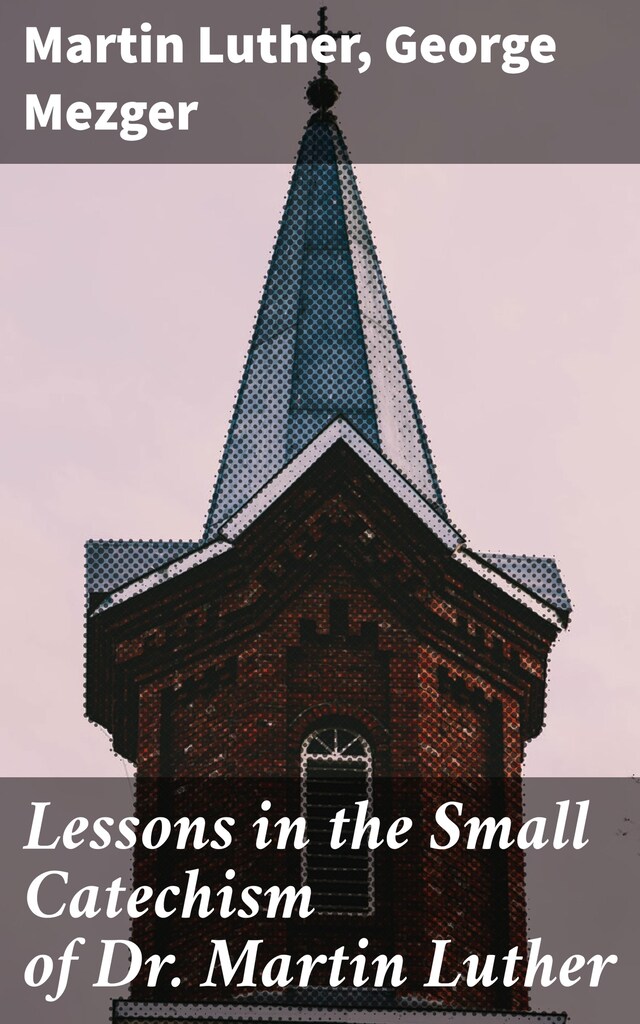
Lessons in the Small Catechism of Dr. Martin Luther
For the Senior Department of Lutheran Sunday-Schools and for General Use
Beskrivelse av boken
In 'Lessons in the Small Catechism of Dr. Martin Luther,' the editors present a meticulously curated anthology that explores the profound theological and philosophical underpinnings of Martin Luther's Small Catechism. This collection spans a diverse array of literary styles, from analytical essays to reflective commentaries, each piece shedding new light on the catechism's enduring relevance. The anthology stands out for its ability to bridge historical context with contemporary interpretation, providing readers with a comprehensive understanding of Luther's work and its impact on Christian thought. The inclusion of pieces that scrutinize specific doctrines within the catechism highlights the depth and complexity of Luther's theological contributions. The contributing authors, led by Martin Luther and George Mezger, bring to the collection a wealth of expertise in theology, history, and religious education. Their backgrounds present a rich tapestry of perspectives that reflect a range of historical, cultural, and academic contexts. The collection aligns with the broader Protestant Reformation movement, showcasing how Luther's catechism has influenced various aspects of Christianity and education. The authors' collective scholarship enriches the reader's understanding of the catechism's historical significance and its application in contemporary faith practices. This anthology is an invaluable resource for students, scholars, and anyone interested in the intersections of religion, history, and education. It offers readers a unique opportunity to explore the multifaceted dimensions of Martin Luther's Small Catechism through a scholarly lens. Engaging with this collection promises not only to broaden ones knowledge of Lutheran doctrine but also to foster a deeper appreciation for the catechisms role in shaping religious education. For those seeking to deepen their understanding of Christian thought and the Reformative period's literary output, this anthology is an essential read.
 215 Sider
215 Sider